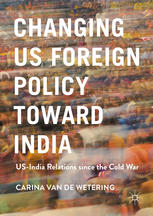

Most ebook files are in PDF format, so you can easily read them using various software such as Foxit Reader or directly on the Google Chrome browser.
Some ebook files are released by publishers in other formats such as .awz, .mobi, .epub, .fb2, etc. You may need to install specific software to read these formats on mobile/PC, such as Calibre.
Please read the tutorial at this link: https://ebookbell.com/faq
We offer FREE conversion to the popular formats you request; however, this may take some time. Therefore, right after payment, please email us, and we will try to provide the service as quickly as possible.
For some exceptional file formats or broken links (if any), please refrain from opening any disputes. Instead, email us first, and we will try to assist within a maximum of 6 hours.
EbookBell Team

4.3
68 reviewsThis book uncovers how US-India relations have changed and intensified during the administrations of Bill Clinton, George Bush Jr., and Barack Obama. Throughout the Cold War, US-India relations were often distant and volatile as India mostly received attention at times of grave international crises, but from the late 1990s onwards, the US showed a more sustained interest in India. How was this shift possible? While previous scholarship has focused on the civilian nuclear deal as a turning point, this book presents an alternative account for this change by analyzing how India’s identity has been constructed in different terms after the Cold War. It examines the underlying discourse and explains how this enables or constrains US foreign policymakers when they establish security policies with India and improve US-India relations.